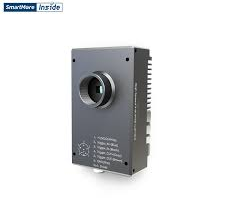RFID In Logistics: How does RFID Work in Logistics?

RFID, or Radio Frequency Identification, is a device that can be attached to anything so that it can be tracked through radio waves. This article discusses RFID’s progress in the logistics industry and how it has improved logistics.
What is RFID?
RFID is a technology that uses radio waves to identify and track objects. Objects with RFID tags can be scanned remotely, which allows companies to track the movement of items within their supply chains. This information can help companies optimize their logistics processes and reduce the time it takes to deliver products to customers.
RFID tags are small devices that are embedded into objects. They use a reader to scan frequencies and receive data. The data collected from an RFID tag includes the object’s identifier, its location, and other information about the object.
How does RFID work in logistics?
RFID technology is a powerful way to help streamline logistics. RFID tags can be attached to objects and used to track their movements throughout the supply chain.
By tracking the movement of these items, companies can improve their accuracy in predicting demand and ensuring that products arrive at their destinations on time. Additionally, RFID systems can help identify theft or other incidents along the supply chain.
Overall, RFID technology is a cost-effective way to improve logistics performance. By using tags and sensors to track inventory and shipments, companies can reduce waste and build better relationships with their suppliers.
What value can RFID offer to logistics?
RFID provides value to businesses in several industries, including logistics. RFID tags are tiny chips that store data and can be read by RFID readers. This technology is used to track items throughout the supply chain, from manufacturing to distribution and retail.
RFID can help businesses save time and resources. For example, it can help manufacturers track the status of products as they move through the supply chain. RFID also helps retailers keep track of inventory levels and ensure that items are in stock at all times.
Conclusion
RFID in logistics is a system that uses radio frequency identification to read and write data to or from tags attached to objects. RFID can automate many processes within warehouses, including picking, sorting, stocking, tracking inventory levels, and more. Although there are many benefits to using RFID in logistics systems, it can also be challenging to implement properly. If you’re interested in learning more about how RFID works in logistics systems and whether it might be an option for your business, explore the website of Hopeland RFID for more information.





